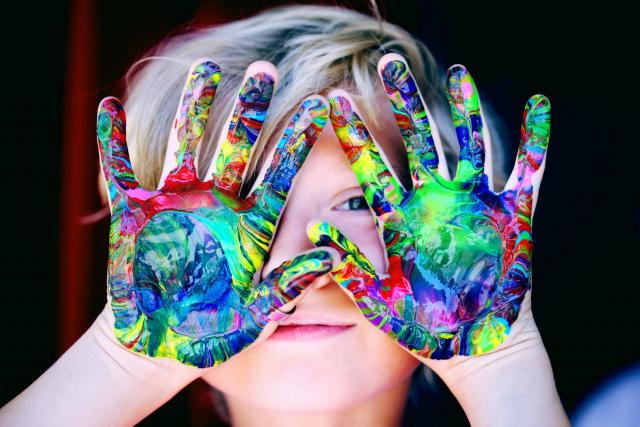We all know that a little arts and crafts are great to keep your kids busy and entertained for a while. Art promotes creativity, imagination, confidence and it keeps them off of screens for a little while.
But did you know the benefits of practising artistic creativity goes beyond just building creative skills?
A 2016 study of the benefits of being part of an ‘Arts-Based Mindfulness Group Intervention for Vulnerable Children’ showed surprisingly good results. This study, conducted by Diana Coholic and Mark Eys and published in the Child and Adolescent Social Work Journal, worked with children in vulnerable social or psychological states who were experiencing a variety of challenges in their day to day lives. Children and parents were interviewed before and after the 12-week Art-Based Mindfulness Group Intervention, using Piers-Harris Children’s Self-Concept Scale and the Resiliency Scales for Children and Adolescents as guidelines to asses their mental states pre- and post-course participation.
The idea of the course was to improve the resilience and ‘self-concept’ that children who participated in the experiment had. 47 children took part, 30 girls and 17 boys with an average age of 10 years.
What the study hoped to measure was;
- Emotion regulation
- Mood
- Coping/social skills
- Confidence and self-esteem
- Empathy
- Ability to pay attention and focus
The recent move towards mindfulness-based interventions (MBI) sees an emphasis on ‘improving concentration and attention, building emotion regulation, gaining self-knowledge, and improving empathy and compassion. The goals of MBIs include becoming fully aware of one’s moment-to-moment stream of consciousness and to be accepting of these experiences.’
This experiment used the ‘Self-concept Scale’ which is designed to measure how children view themselves, either in positive or negative ways in relation to certain aspects of their lives. For example, their behaviour, school ability, and physical appearance and attributes. The scale also works to assess how anxious children feel, how popular they think they are, and how happy and satisfied they feel.
Overall, the results of the self-concept scale after the mindfulness-based intervention had been completed, showed that improvements had been made in those key areas mentioned above, illustrating an improvement in the ability understand and cope with emotions and feelings. There was also an increase in confidence levels, focus, concentration abilities,
There are variables in the experiment that show that it is perhaps not just art that is the source of the confidence and improved ability, but the combination of mindfulness and group work that also aids these improvements to mental and social health and coping ability. The group setting simultaneously alleviates isolation felt by social or mental issues and also brings unhealthy coping mechanisms to the fore to allow them to be focused on and treated in a mindful fashion. The group setting allows for the incorporation and learning of interpersonal skills that allows them to cooperate towards a shared goal.
The art, on the other hand was repeatedly described as ‘fun’ by the participants of the experiment and as Coholic and Eys state, that is ‘crucial for vulnerable children as many of them experience serious challenges at school and home, and often feel isolated and alone. It is the experience of having fun that can keep a child emotionally receptive so that positive messages can slip through his/her defences.'
So grabbing the arts the arts and crafts box that’s gathering dust in the corner might not be such a bad idea after all! It can be messy, time-consuming and get a little loud, but the benefits surely outweigh all of that!
Source: Coholic, D.A., Eys, M. Benefits of an Arts-Based Mindfulness Group Intervention for Vulnerable Children. Child Adolesc Soc Work J 33, 1–13 (2016). https://doi-org.libgate.library.nuigalway.ie/10.1007/s10560-015-0431-3












